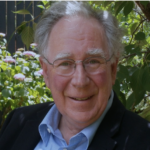Without a doubt the last twelve months have been Catholicism’s annus horribilis and, let me assure you, there’s still not much light at the end of the tunnel.
2018 was the year in which the abuse crisis came to a head and it has absolutely stymied the pastoral governance of the church. At first it was seen as an “Anglo” problem, but then reports of abuse appeared in Europe, Chile and other parts of Latin America. After several years of underestimating it, Pope Francis woke-up to the problem after he was deceived by church authorities in Chile and was forced into an abject apology in mid-2018. Now convinced it is a worldwide problem, he called presidents of bishops’ conferences to the Vatican last week for a three-day summit on transparency and abuse. What happened?
Even before things got underway, two anti-Francis cardinals, Raymond Burke and Walter Brandmüller, claimed that the whole problem was that priest-abusers were all gay. “The plague of the homosexual agenda,” they wrote, “has been spread within the church, promoted by organised networks and protected by a climate of complicity and a conspiracy of silence.” There is not a scintilla of evidence to support this and Brisbane Archbishop Mark Coleridge, President of the Australian Bishops’ Conference, said these cardinals “are renowned for this kind of critique, which I…simply reject out of hand.” Spot-on!
Then there was Theodore McCarrick. A week before the summit, the pope expelled the former Cardinal Archbishop of Washington from priestly ministry (he had already resigned from the college of cardinals), after he was found guilty of abusing seminarians and under-age boys. Next came Frédéric Martel’s book In the Closet of the Vatican, published the day the abuse summit began. Martel claims that the Vatican itself is riddled with closeted gay priests. While clear that there’s no connection between homosexuality and pedophilia, Martel says gay priests cover for each other and fear exposure.
It’s obvious Francis wanted the bishops to realise that this was a worldwide problem, not just confined to the developed world. Mumbai Cardinal Oswald Gracias emphasized that “there are cases all over the world, in Asia, in Africa.” This was an important comment because in both places there is a strong tendency for bishops to pretend that this is only a “Western” problem. To drive the point home the summit opened with recorded testimony from five abuse survivors from across the world. The woman from Africa told the bishops that she had been abused from the age of 15 by a priest, who forced her to have three abortions. “I feel I have a life destroyed,” she said. This confronted the African bishops present, who are perhaps most in denial.
For me the most significant aspect of the summit was that three women from Nigeria, Italy and Mexico were invited to speak. They were by far the most interesting speakers and none of them minced their words. They were the “stars” of the show and I think their participation signaled a modulation in church attitudes. When a man like Mark Coleridge, whose experience of the Vatican means he can sniff the slightest change in wind direction, says that the bishops “have been our own worst enemy,” you know that influential people in the church are getting the message.
There also seems to have been an attitudinal shift in Vatican media. There has been something of a clearing out of the old guard and the fact that all the sessions were open is a good sign. One of the women speakers was Dr Valentina Alazraki, a Mexican journalist who has been covering the Vatican for many years. She knows the place back-the-front and she told the bishops that any form of cover-up is “contemptible”. She told them to be “proactive” with the media. When abuse comes to light, tell the story honestly. “Be transparent.” The media, she said, was not the enemy of the church, but that journalists were not going to accept church obfuscation. In the end, she said, “silence is far more costly than telling the truth.”
Alazraki also highlighted the need for women in positions of real authority. Using the image of the maternal role of the church, she said that “as a mother the church should care for her most vulnerable children” and when this doesn’t happen “an abominable crime” is committed. Essentially, she was saying that if women and mothers had had genuine authority in Catholicism, the abuse crisis would have been confronted much earlier and the damage limited. Clerical priests as single males are detached from children because they have none of their own.
One key issue facing this “global emergency,” as Coleridge calls it, is the accountability of bishops and how this is going to be enforced, especially on the recalcitrant. Pope Francis envisages a church where authority and governance is devolved downwards to the regional level. But evolving structures that respect local cultures and conditions, while at the same time discipling bishops who fail to confront and deal with the abuse crisis is going to be difficult, and will require intervention from higher authority. Some say this should be the metropolitan, the senior archbishop of the region or nation. Others say that’s too close to home. Mark Coleridge argued that there should be a Vatican office with oversight of this issue throughout the whole church.
In the end, the critics are right. There were no practical, down-to-earth rules and regulations issued, no zero tolerance decreed. But what the critics don’t get is that in a world-wide organization like Catholicism what you can do in one culture is much more difficult to do in another. Yes, those cultures have to be hauled into line. But I discern a subtle shift in attitude and that gives me just a bit of light at the end of the tunnel.
Paul Collins most recent book was Absolute Power. How the pope became the most influential man in the world (Public Affairs, 2018).




